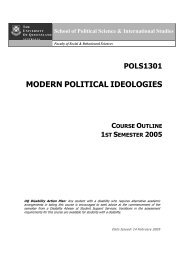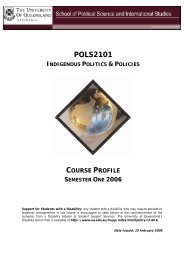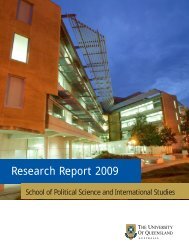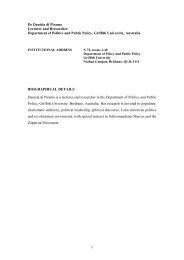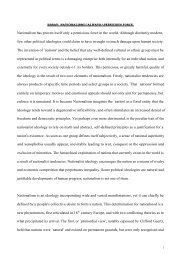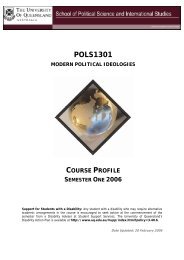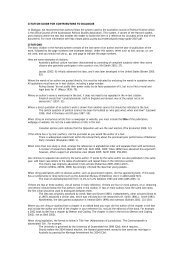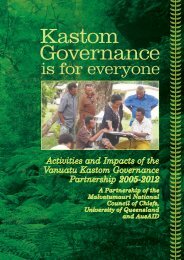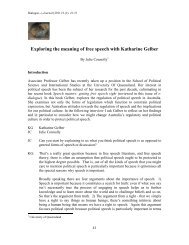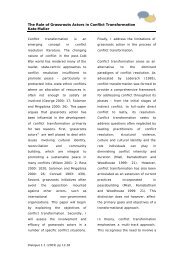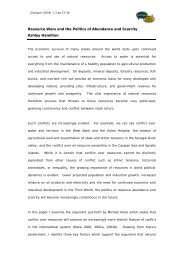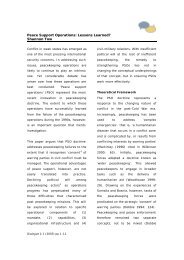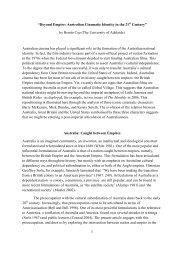old quarrel between - School of Political Science and International ...
old quarrel between - School of Political Science and International ...
old quarrel between - School of Political Science and International ...
Create successful ePaper yourself
Turn your PDF publications into a flip-book with our unique Google optimized e-Paper software.
(Nietzsche, 1993: 73).<br />
The Birth <strong>of</strong> Western Metaphysics<br />
The central <strong>and</strong> ultimately quite simple error that is expressed by Plato’s<br />
Socrates is that he fails to recognize the skill <strong>of</strong> the poet to move beyond <strong>and</strong><br />
before ‘reason’. Indeed, that the poet has no skills at all, in contrast to<br />
cabinet makers, architects <strong>and</strong> physicians, is another way <strong>of</strong> presenting<br />
Socrates argument (Plato, 1987). In this section I will try to give an account<br />
<strong>of</strong> the skill <strong>of</strong> the poet.<br />
What skill is expressed in poetry? This question could be put; what techne is<br />
expressed in poiesis? This again, deploying widely accepted translations,<br />
could be written as; what skill or art is expressed in making or production?<br />
These series <strong>of</strong> questions, if we accept them as equivalent, suggest that there<br />
is a relationship <strong>between</strong> poetry <strong>and</strong> production. It is this kind <strong>of</strong><br />
underst<strong>and</strong>ing that appears to inform the Ion dialogue. That is, the physician<br />
produces health, the firelighter produces fire while the poet produces, well,<br />
nothing but passionate deceptions. The poet simply does not have the skills<br />
to produce anything ‘real’. If the poet claims to know what is right <strong>and</strong> good it<br />
must be a deception as the poet does not have the specific skills to actually<br />
produce anything. This underst<strong>and</strong>ing <strong>of</strong> the role <strong>of</strong> the poet is harmonious<br />
with the account given by Plato in The Republic where what is produced by<br />
God is the most real, followed by the thing produced by technites <strong>and</strong>, finally,<br />
the ‘representation’ produced by the poets, as Plato writes,<br />
So the tragic poet, if his art is representation, is by nature at third<br />
removed from the throne <strong>of</strong> truth; <strong>and</strong> the same is true <strong>of</strong> all<br />
other representative artists . . . The art <strong>of</strong> representation is<br />
therefore a long way removed from truth, <strong>and</strong> it is able to<br />
reproduce everything because it has little grasp <strong>of</strong> anything, <strong>and</strong><br />
that little is <strong>of</strong> a mere phenomenal appearance. For example, a<br />
painter can paint a portrait <strong>of</strong> a shoemaker or a carpenter or any<br />
Dialogue (2007) 5:1 33



